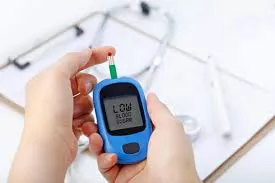Hyperglycemia, or elevated blood glucose levels, is a common concern for individuals with diabetes and those at risk of developing the condition. Effective management of hyperglycemia is crucial for preventing long-term complications and maintaining overall health. One simple yet often overlooked strategy for managing blood sugar levels is staying well-hydrated. In this article, we will explore the relationship between drinking water and hyperglycemia, examining how hydration can influence blood glucose levels, and provide practical advice on incorporating adequate water intake into your daily routine.
Understanding Hyperglycemia
Hyperglycemia occurs when the body’s blood glucose levels are higher than normal. This condition can arise due to various factors, including:
Insulin Deficiency: In diabetes, the body either does not produce enough insulin or does not use it effectively, leading to elevated blood sugar levels.
Insulin Resistance: Cells become less responsive to insulin, causing glucose to accumulate in the bloodstream.
Excessive Carbohydrate Intake: Consuming high amounts of carbohydrates can cause a spike in blood glucose levels.
Lack of Physical Activity: Sedentary behavior can contribute to poor glucose regulation and insulin resistance.
Stress: Stress can increase blood sugar levels through hormonal changes.
Chronic hyperglycemia can lead to serious health complications, including cardiovascular disease, neuropathy, nephropathy, and retinopathy. Therefore, managing blood glucose levels effectively is essential for reducing the risk of these complications.
The Role of Hydration in Managing Hyperglycemia
Water plays a vital role in maintaining overall health and can influence various physiological processes, including blood glucose regulation. Here’s how adequate hydration can impact hyperglycemia:
1. Promotes Kidney Function
The kidneys are responsible for filtering excess glucose and other waste products from the blood. When blood sugar levels are elevated, the kidneys work harder to excrete the excess glucose through urine. Adequate hydration helps support kidney function by ensuring that there is enough fluid for efficient filtration and excretion of excess glucose. This can help reduce the risk of developing diabetic nephropathy and other kidney-related complications.
2. Prevents Dehydration
Hyperglycemia can lead to increased urination, which can result in dehydration. Dehydration can exacerbate hyperglycemia by reducing the body’s ability to regulate blood glucose levels. Drinking enough water helps maintain proper hydration status, which is essential for overall metabolic function and glucose management.
3. Supports Digestive Health
Adequate water intake supports digestive health by promoting the breakdown and absorption of nutrients. Proper digestion and nutrient absorption are crucial for maintaining stable blood sugar levels. Water helps facilitate the digestion process and prevents issues such as constipation, which can affect overall glucose metabolism.
4. Aids in Appetite Regulation
Drinking water can help regulate appetite by promoting satiety and reducing overall calorie intake. Staying hydrated can prevent overeating and help with weight management, which is important for individuals with insulin resistance or type 2 diabetes. Excess weight can contribute to poor glucose control and increased hyperglycemia.
5. Enhances Insulin Sensitivity
Some studies suggest that adequate hydration may improve insulin sensitivity. Insulin sensitivity refers to how effectively the body responds to insulin. Improved insulin sensitivity can help lower blood glucose levels and reduce the risk of hyperglycemia. Drinking water may play a role in maintaining or improving insulin sensitivity, although more research is needed to fully understand this relationship.
Scientific Evidence on Hydration and Blood Glucose Levels
Several studies have investigated the impact of hydration on blood glucose levels and overall glucose metabolism. Here are some key findings:
1. Hydration and Glycemic Control
Research has shown that dehydration can negatively impact glycemic control. A study published in Diabetes Care found that individuals with diabetes who were dehydrated had higher blood glucose levels compared to those who were well-hydrated. This suggests that maintaining adequate hydration is important for managing blood glucose levels and preventing hyperglycemia.
2. Water Intake and Insulin Sensitivity
A study published in The Journal of Clinical Endocrinology & Metabolism examined the effects of water intake on insulin sensitivity. The study found that increasing water intake was associated with improved insulin sensitivity in healthy individuals. While more research is needed to confirm these findings in individuals with diabetes, the results suggest that hydration may play a role in enhancing insulin sensitivity.
3. Fluid Balance and Hyperglycemia
Research has also explored the relationship between fluid balance and hyperglycemia. A study published in The American Journal of Physiology found that maintaining proper fluid balance is crucial for glucose regulation. Dehydration was associated with impaired glucose tolerance and elevated blood glucose levels, highlighting the importance of staying hydrated for managing hyperglycemia.
Practical Tips for Staying Hydrated
Incorporating adequate water intake into your daily routine can support overall health and help manage hyperglycemia. Here are some practical tips for staying hydrated:
1. Drink Water Regularly
Aim to drink water throughout the day, rather than consuming large amounts at once. Sipping water regularly helps maintain hydration levels and supports overall bodily functions.
2. Set Hydration Goals
Set daily hydration goals to ensure you’re drinking enough water. A common recommendation is to consume at least 8 cups (64 ounces) of water per day, but individual needs may vary based on factors such as age, activity level, and climate.
3. Monitor Your Fluid Intake
Keep track of your fluid intake to ensure you’re meeting your hydration goals. You can use a water bottle with measurements or a hydration tracking app to help monitor your daily water consumption.
4. Eat Hydrating Foods
Incorporate hydrating foods into your diet, such as fruits and vegetables with high water content (e.g., cucumbers, watermelon, and oranges). These foods can contribute to your overall fluid intake and provide additional nutrients.
5. Avoid Excessive Caffeine and Alcohol
Caffeinated and alcoholic beverages can have diuretic effects, leading to increased fluid loss. While moderate consumption is generally acceptable, it’s important to balance these beverages with adequate water intake to maintain proper hydration.
6. Listen to Your Body
Pay attention to signs of dehydration, such as dry mouth, dark-colored urine, and dizziness. If you experience these symptoms, increase your water intake to rehydrate your body.
See also: What Does Hyperglycemia Mean?
Conclusion
Drinking water is a simple yet effective strategy for managing hyperglycemia and supporting overall health. Adequate hydration helps maintain kidney function, prevents dehydration, supports digestive health, regulates appetite, and may improve insulin sensitivity. While water alone is not a cure for hyperglycemia, it plays a crucial role in a comprehensive approach to blood glucose management.
Incorporating regular water intake into your daily routine, along with other healthy lifestyle practices such as balanced eating, regular physical activity, and monitoring blood glucose levels, can contribute to better glucose control and overall well-being. If you have concerns about your blood glucose levels or hydration status, consult with a healthcare provider for personalized advice and recommendations.
By staying well-hydrated and adopting a holistic approach to managing hyperglycemia, individuals can improve their quality of life and reduce the risk of complications associated with elevated blood glucose levels.
Related topics:

























